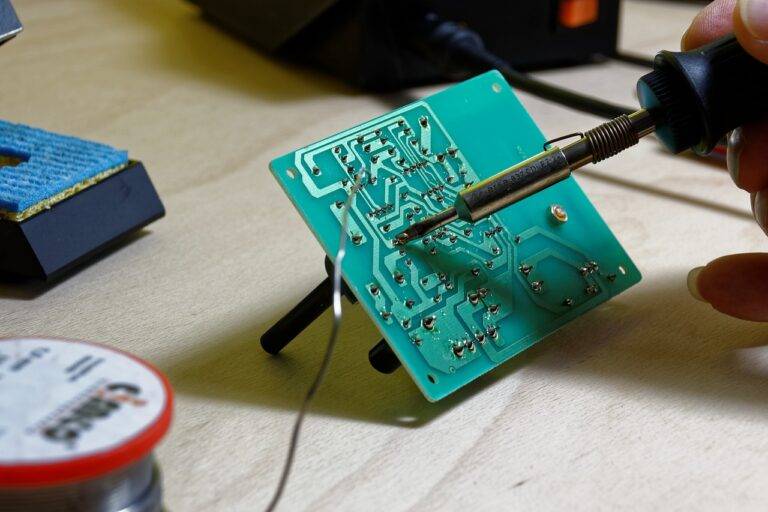Sustainable Materials in Tech Manufacturing: From E-Waste to Eco-Friendly Alternatives
In the realm of tech manufacturing, the materials used play a crucial role in determining the quality and functionality of the final product. From the sleek exterior of smartphones to the intricate circuitry within computers, the choice of materials significantly impacts both the performance and aesthetics of electronic devices. Companies carefully select materials such as metals, plastics, glass, and silicon to ensure durability, conductivity, and overall user experience.
Innovations in material science continue to drive advancements in tech manufacturing, pushing the boundaries of what is possible in terms of efficiency and sustainability. Engineers and researchers are constantly exploring new materials and composites that offer improved performance characteristics while also taking into account environmental considerations. As the demand for smaller, more powerful devices grows, the need for lightweight yet durable materials becomes increasingly important in shaping the future of tech manufacturing.
E-Waste: A Growing Concern
Electronic waste, or e-waste, has become a pressing issue in today’s tech-driven world. With the rapid pace of technology advancements and the ever-shortening lifespan of electronic devices, the accumulation of e-waste has skyrocketed in recent years. The improper disposal of old or obsolete electronics poses serious environmental and health risks, as these devices often contain hazardous materials such as lead, mercury, and cadmium.
As consumers and industries continue to upgrade their electronic devices at an alarming rate, the volume of e-waste generated is expected to further increase. This trend not only puts a strain on waste management systems but also exacerbates the depletion of valuable resources and contributes to pollution. The proper handling and disposal of e-waste has thus become a critical concern that requires immediate attention and action from governments, industries, and consumers alike.
Challenges of E-Waste Management in Tech Manufacturing
Ensuring responsible e-waste management in the tech manufacturing industry presents a myriad of hurdles. One of the primary challenges is the lack of standardized recycling practices across different regions and countries. This disparity often results in varying levels of environmental impact and sustainability measures, hindering global efforts to effectively tackle the e-waste crisis.
Additionally, the complex composition of electronic devices further complicates the management process. With components made from a wide array of materials, including metals, plastics, and glass, disassembling and recycling these gadgets in an eco-friendly manner requires specialized knowledge and equipment. Without proper guidelines and infrastructure in place, handling the diverse materials found in e-waste can be a daunting task for manufacturers and recyclers alike.





